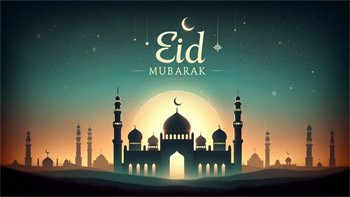 Eid ul-Adha in India
Eid ul-Adha in India


Eid ul-Adha, also known as the Festival of Sacrifice, is one of the most significant Islamic festivals celebrated in India. This auspicious day commemorates the willingness of Prophet Ibrahim (Abraham) to sacrifice his son as an act of obedience to God, before God provided him with a ram to sacrifice instead. Observed on the 10th day of Dhu al-Hijjah, the last month of the Islamic lunar calendar, Eid ul-Adha in India is not only a religious observance but also a time for charity, community bonding, and cultural richness.
The Essence of Eid ul-Adha
The festival honors the devotion and faith of Prophet Ibrahim. It teaches the virtues of faith, sacrifice, and obedience to the will of Allah. Eid ul-Adha is more than just a commemoration; it’s a reminder of the need to submit to the divine and uphold the values of compassion and empathy in daily life. The act of Qurbani (sacrifice), which is central to the festival, symbolizes the willingness to give up things that are dear, for a greater cause.
Celebration and Traditions in India
In India, Eid ul-Adha begins with a special prayer service, known as the Eid Salah, performed in mosques and open grounds. The spirit of charity, or Zakat, is a significant part of the celebration. Muslims who can afford to do so perform Qurbani, sacrificing a goat, sheep, cow, or camel. The meat from the sacrifice is distributed among family, friends, and importantly, to the needy, ensuring participation in the joy of Eid. The act of sharing meat symbolizes the sharing of joy and prosperity.
Cultural Diversity and Regional Variations
Eid ul-Adha in India showcases the country’s immense cultural diversity. Each region has its unique way of observing the festival. In Northern India, particularly in Delhi and Lucknow, Eid ul-Adha is marked by large gatherings and feasts, while in Southern states like Kerala and Hyderabad, the festival includes distinct culinary traditions and family gatherings. This diversity highlights the multicultural fabric of Indian society, where each region adds its flavor to the celebration.
Interfaith Harmony during Eid ul-Adha
The festival also exemplifies India's spirit of secularism and interfaith harmony. People from different faiths often partake in Eid celebrations, visiting their Muslim friends and neighbors. This mutual respect and participation in each other’s festivities highlight the country’s ethos of unity in diversity and the shared values of humanity and compassion.
Eid ul-Adha's Modern-Day Observance
Contemporary practices during Eid ul-Adha include exchanging greetings through digital platforms and social media, reflecting the modern ways of connectivity. However, the essence of the festival – focusing on sacrifice, charity, and community bonding – remains unchanged. The traditional values of Eid ul-Adha continue to resonate, making it a timeless celebration that adapts to changing times while retaining its core significance.
Eid ul-Adha in India is a vibrant mosaic of devotion, charity, and communal harmony. It transcends beyond mere religious rituals, fostering a sense of brotherhood, sharing, and empathy among people. As families gather, prayers are offered, and gifts are exchanged, Eid ul-Adha strengthens communal ties and reiterates the values of selflessness and benevolence, echoing the profound message of sacrifice and devotion inherent in this revered festival.